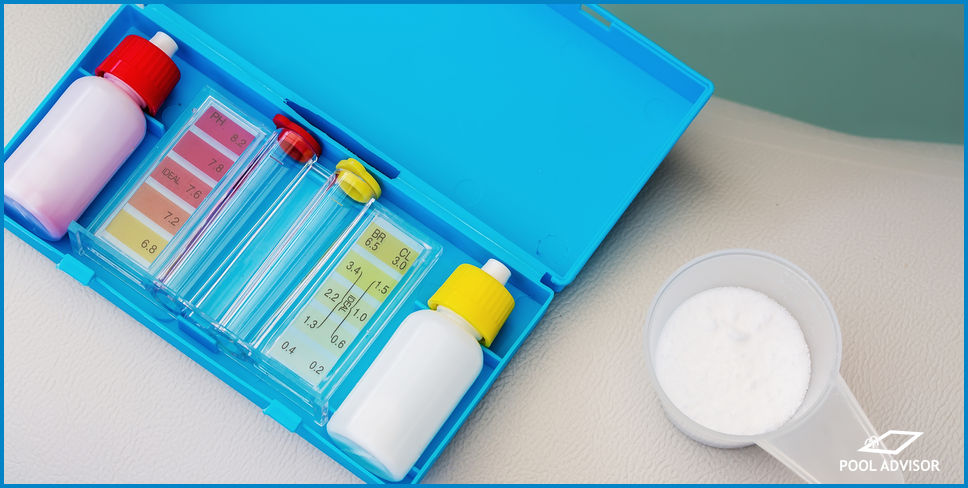
Will Baking Soda Lower The Chlorine Level In My Pool?
High chlorine can be the result of accidentally adding the wrong amount or type of chlorine to your pool, or can also occur as the result of a chlorine-based shock treatment.
Baking soda, or sodium bicarbonate, is a popular at home substitute for many pool chemicals and cleaning products, but will baking soda lower the chlorine level in your pool?
In this article we will discuss the ways that baking soda can affect your pool’s chlorine levels, as well as our recommendations for lowering the amount of chlorine in your water.
How Baking Soda Affects Chlorine Levels
Unfortunately, adding baking soda to your water will not lower chlorine levels in your pool. Instead, it creates an increase in the pH and total alkalinity of your pool as it dissolves.
However, if you have an indoor pool, or an outdoor pool with insufficient stabiliser, adding baking soda to your water will increase the pH and could render the chlorine ineffective.
The chlorine in your water will go from the effective HOCl form (hypochlorous acid), to the ineffective OCl form (hypochlorite ion), which is unable to kill harmful microorganisms in your water.
In this sense, while baking soda won’t reduce your overall chlorine levels, it could reduce the concentration of chlorine that is active and able to sanitise your water.
What If I Wanted To Lower My Chlorine Level?
Even though baking soda does not directly interact with the chlorine molecules in your pool, the subsequent increase in pH levels that it creates can have a catalysing effect on your chlorine when combined with pool-grade hydrogen peroxide.
Hydrogen peroxide is a chemical that interacts with and works to remove chlorine, but also tends to create acidic water. This is what necessitates the use of baking soda in order to maintain regulated pH throughout the treatment process. Appropriate use of hydrogen peroxide will cause the chlorine in your pool to degrade and evaporate at faster rates.
It’s important to remember that raising the pH alone using baking soda will not affect your chlorine levels. Because making this process effective will require that you purchase bulk amounts of pool-grade hydrogen peroxide, we recommend using products specifically designed to lower the chlorine levels in your pool instead.
How to Lower Chlorine in Your Pool
One of the most effective compounds for removing high concentrations of chlorine from your pool is sodium thiosulphate. Sold as a chlorine remover, this product can quickly adjust the chlorine levels of your pool without unwanted side effects for your pool’s chemistry.
Sodium thiosulphate is also safe for swimmers, and depending on the concentration of your product, swimming may be possible during treatment time. Always follow instructions on your specific product’s packaging, as variations in safety information do occur.
Our chlorine remover is highly potent, with only 50 grams being required to lower chlorine levels by 1 part per million (ppm) in a swimming pool of 50,000 litres.
Regardless of how high your chlorine levels have risen, this product is extremely effective at getting your levels back within the appropriate range of 2-4ppm.
Conclusion
Baking soda or sodium bicarbonate is an effective substitute for pH and alkalinity increasing products, and is also a useful product when undertaking cleaning projects on your pool. However, baking soda is not a fix-all solution for your pool’s chemistry.
Because baking soda will not lower chlorine levels in your pool, we recommend using a reliable chlorine removal product designed for this purpose instead.
Do you have any questions about baking soda’s effectiveness for removing chlorine from pools? Leave us a comment down below!

Louis
A chemical engineer by trade, Louis is committed to debunking myths in the pool industry by explaining the underlying chemistry and making it accessible to all.
